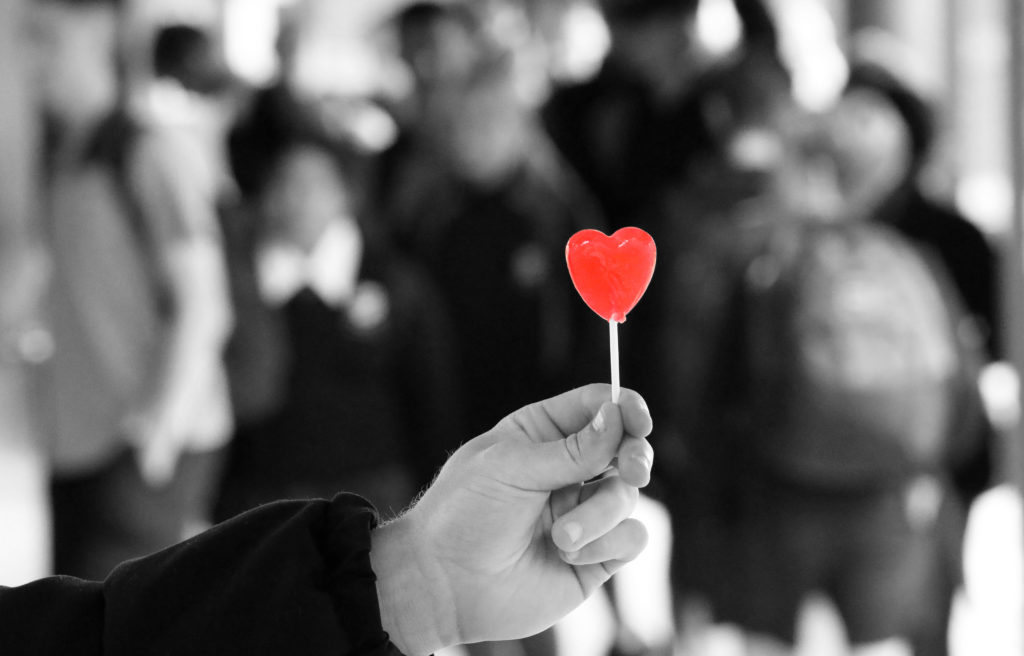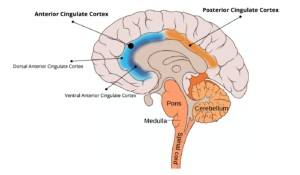Quick Hits
Daily brief research updates from the cognitive sciences

Love and kindness
We all know that some people are more altruistic than others. Most of us will also admire acts of selfless behaviour. The hero who saves a person, the people who serve others tirelessly on various volunteer projects, and those kind people who always seem to have time to help another soul.
So, if we know some people are more altruistic, it would follow that we should be able to see this in a brain. Some regions have been identified as helping with various social skills such as the medial frontal cortex (I review psychopaths in this article and their brains – the opposite of altruists).
However, a group of researchers at Birmingham University have now been able to identify another region of the brain that seems to be specifically involved when making conscious, and effortful, decisions to help others. This activates differently to decisions to help oneself.
What did these researchers discover?
Patricia Lockwood et al. worked with 38 people between 18 and 35. They took part in effortful decision-making tasks, self-assessed their empathy, and went through a series of decisions while having their brains scanned. In this particular experiment the particularly clever bit was that the candidates had to work. This is a problem of brain scanning. It can’t be done in the real world or when walking around – only lying in a scanner. This means that decisions can be made but that may not reflect the amount of effort a person will invest into a task.
In this experiment participants had to squeeze a device that measured grip strength – they had to squeeze hard enough and long enough to reach a threshold to get a reward. The researchers could therefore see how much effort a person was willing to exert to get various rewards. But in this case, they could also see and accurately measure differences for work to get a reward for oneself or work done to get a reward for another person. Ingenious.
 And in doing this they managed to identify a region called the anterior cingulate cortex gyrus (ACCg) that was associated with the effortful decision.
And in doing this they managed to identify a region called the anterior cingulate cortex gyrus (ACCg) that was associated with the effortful decision.
- Firstly, it did not activate when making an effortful decision for themselves.
- Secondly those who said they were more altruistic also had the strongest effort patterns in the ACCg.
- Thirdly stronger grip activation was associated with stronger activation of the ACCg suggesting that this region directly correlates with effortful decision to help others.
As usual for this kind of study a lot more work has to be done with different individuals and also, for example, with those who have antiscoail perosnality disorder or psychopaths.
Nevertheless, a fascinating piece of research, particularly when we consider that the Anterior Cingulate Cortex (for review see here) has multiple associations with decision-making, error detection, but also with behaviour change. So, it looks promising.
Can we train the ACCg? Unlikely, but having this knowledge is still likely to be useful.
And I certainly feel my ACCg seems to be in good shape!

Andy Habermacher
Andy is author of leading brains Review, Neuroleadership, and multiple other books. He has been intensively involved in writing and research into neuroleadership and is considered one of Europe’s leading experts. He is also a well-known public speaker, speaking on the brain and human behaviour.
Andy is also a masters athlete (middle distance running) and competes regularly at international competitions (and holds a few national records in his age category).
Reference
Patricia L. Lockwood, Marco K. Wittmann, Hamed Nili, Mona Matsumoto-Ryan, Ayat Abdurahman, Jo Cutler, Masud Husain, Matthew A.J. Apps.
Distinct neural representations for prosocial and self-benefiting effort.
Current Biology, 2022
DOI: 10.1016/j.cub.2022.08.010
More Quick Hits
Coffee Makes Business Teams More Effective
Quick HitsDaily brief research updates from the cognitive sciences just couldn’t resist reviewing this piece of research, from a few years ago, after I stumbled across this (likely because some background algorithm had recommended it to me based...
Caffeine Makes You More Prone to Impulsive Buying
Quick HitsDaily brief research updates from the cognitive sciences fascinating piece of research just published shows that drinking coffee makes you more impulsive. That means you are likely to buy more, and more items you actually don’t need....
Healthy Brains Are Hotter Than You Think
Quick HitsDaily brief research updates from the cognitive sciences hen we get sick we get a fever and we all know what our body temperature should be: around 37°C. Too much above that and we have a fever, and too much below and we risk...
Unpredictable Parents Disrupt Brain Circuitry in Children
Quick HitsDaily brief research updates from the cognitive sciences ntuitively we all know that good parenting is essential to kids’ healthy development. We all agree on that. But as soon as we try to define what good parenting is we then enter into...
A New Study on Inter-Brain Synchronisation
Quick HitsDaily brief research updates from the cognitive sciences n case you didn’t know it brain synchronisation (or inter-brain synchronisation) is a thing. And a pretty cool thing. This happens when two, or more, people do similar things...
Unique Social Genes in Human Beings
Quick HitsDaily brief research updates from the cognitive sciences ne differentiating factor with human beings is our pro-sociality. This means we are a social species, and this sociality is seen in our ability to empathise, be socially tolerant,...






